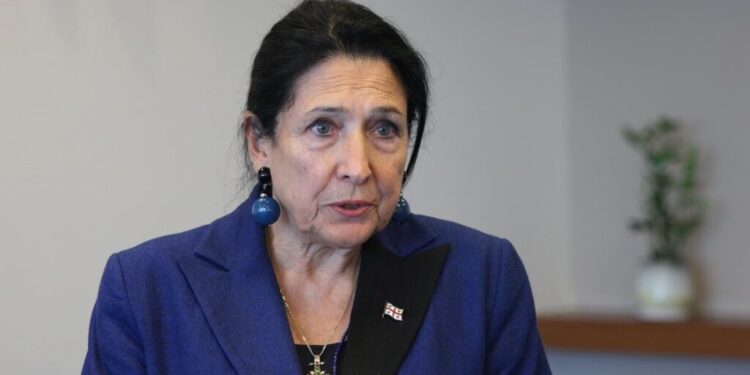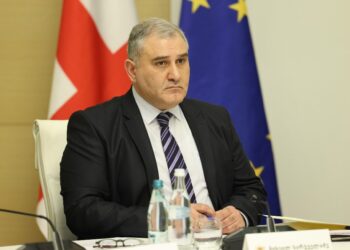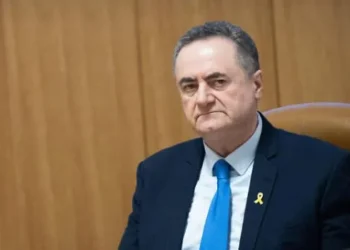Former Georgian President Salome Zurabishvili has sent a compelling letter to European Union Foreign Ministers, as well as Vice-President and High Representative for Foreign Affairs and Security Policy, Kaja Kallas, urging immediate and decisive action in response to the deteriorating political situation in Georgia.
“Following the European Parliament Resolution and ahead of the upcoming Foreign Affairs Council, I feel it is my responsibility to draw your attention to the alarming internal and geopolitical developments unfolding in Georgia—an EU candidate country that now faces a grave threat of authoritarian transformation,” Zurabishvili wrote.
She warns that Georgia is experiencing accelerated democratic backsliding, which, she clains, is turning a state long nurtured by EU investments and democratic values into a quasi-totalitarian system. Zurabishvili underscores that this internal shift is part of a broader Russian strategy to capture the state through manipulated elections, propaganda, and indirect interference—a “hybrid strategy” she claims replaces military aggression with subversive control.
“Given Russia’s failure to assert dominance over Ukraine militarily, its focus has shifted to subtler, yet equally threatening methods. Georgia is now a key target of these tactics,” she notes, comparing similar failed attempts by Russia in Moldova, Romania, and Serbia.
Zurabishvili also highlights the strategic stakes: a peaceful and united Caucasus region, she argues, is within reach due to ongoing progress between Armenia and Azerbaijan—but Russia is now attempting to block that vision by tightening its grip on Georgia. She further warns of Georgia’s current leadership aligning with Chinese investment interests in the Black Sea, particularly in the Anaklia port project, which may further serve Russian strategic objectives and challenge Western influence.
“This is not merely a domestic political dispute caused by flawed elections,” she stresses. “It is a European crisis—one that threatens the EU’s credibility, its enlargement policy, and its geopolitical influence.”
She concludes her letter with an urgent appeal ahead of the July 15 Foreign Affairs Council meeting:
- Recognize the situation as an authoritarian takeover and strategic realignment with Russia.
- Firmly support the Georgian people, who remain committed to European integration despite rising repression.
- Respond with coordinated and decisive political action, aligned with the European Parliament’s stance.
“The time for strategic patience has passed,” she writes. “What is required now is moral conviction and political clarity. Georgia’s democratic future—and Europe’s geopolitical integrity—are at stake.”
Related story: 17 countries and EU urge Georgia to reverse repressive measures, release political prisoners














